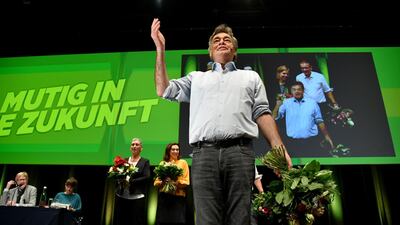Austria's foreign ministry has been targeted in "serious cyber attack", it said late Saturday.
It has warning another country could be responsible.
"Due to the gravity and nature of the attack, it cannot be excluded that it is a targeted attack by a state actor," it said in a statement with the interior ministry, adding that the attack was ongoing.
"In the past, other European countries have been the target of similar attacks," it continued.
Immediate measures had been taken and a "coordination committee" set up, it said, without elaborating.
The attack came as Austria's Greens on Saturday gave the go-ahead to a coalition with the country's conservatives at a party congress in Salzburg, removing the last obstacle to the unprecedented alliance.
The German government's IT network in 2018 was hit by a cyberattack.
Last year the EU adopted powers to punish those outside the bloc who launch cyberattacks that cripple hospitals and banks, sway elections and steal company secrets or funds.


